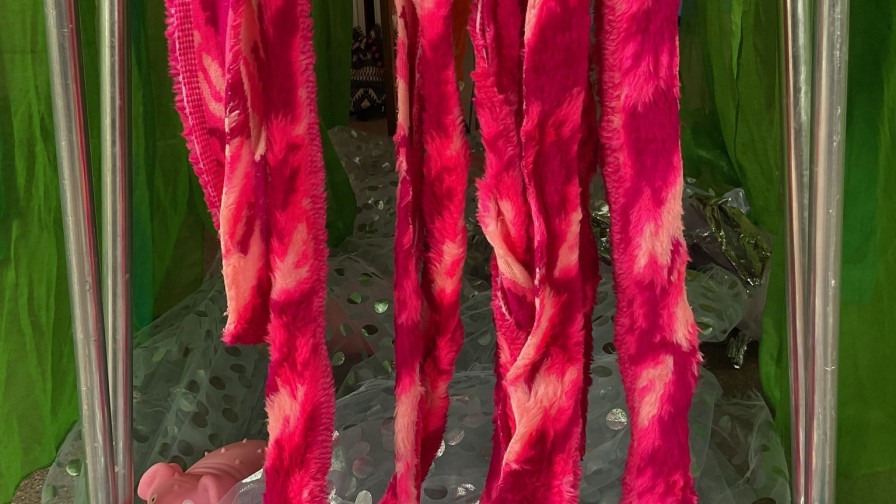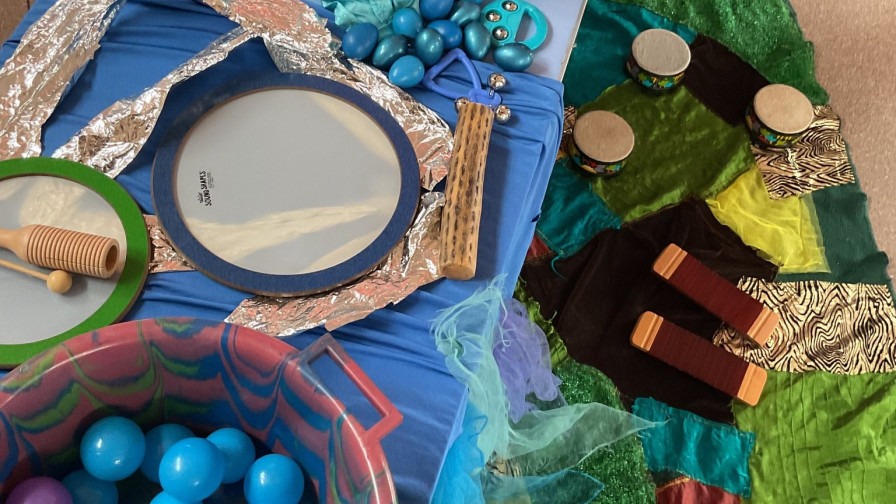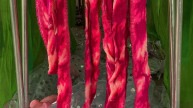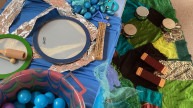Magic Acorns Early Years Training - Connecting to Playfulness
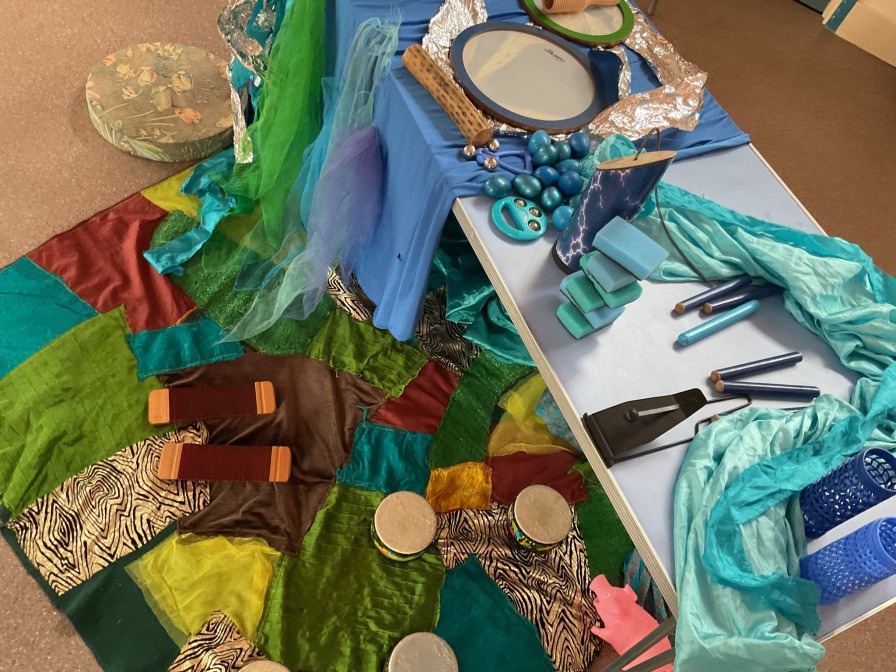
Youth Music's Programme Officer Phoebe Cross reflects on a day of Musical Play with Magic Acorns.
Introducing Magic Acorns
Magic Acorns are an early years development organisation striving to co-create ground-breaking work with, and for the very youngest children. Youth Music is pleased to be supporting Magic Acorns' work through a Catalyser Fund grant (thanks to the National Lottery via Arts Council England) and a Recharge Fund grant (thanks to players of People's Postcode Lottery).
Magic Acorns work inclusively, led by children's imaginations and research, across multiple art forms - music, theatre, making, art and play. They're known in the sector for their collaborations with early years practitioners, artists and cultural organisations, making extraordinary multi-sensory experimental creations and training accessible to young children, artists, educators and the wider community, both in the UK and internationally.
Getting settled in
So with all that in mind, I was very excited to arrive in Norwich and spend a full day on a Magic Acorns training session with Sophie Fox and Natalie Willis and eight other participants. The aim was to learn more about listening more deeply, connecting more playfully and get to know more about musical play and sensory environments. It was unlike any other training I'd done before, with an immediate fun and relaxed atmosphere. Gone were the usual introductions of our name, job title and work background as we instead went round the group and said our names and something that we liked, integrated into a collective song. Exclamations of "My name is Meg and I like crinkle cut crisps" and "My name is Phoebe and I like cats" felt like an invitation to connect with the childish side we were aiming lean into. An appropriate and refreshing start which put me at ease and removed some of the usual training session awkwardness.
Exploring sound massage
The first activity we did was a sound massage, where we worked in pairs to take turns creating a 360 immersive sound experience for our partner. An inviting table was laid out, full of calm and mostly colourful everyday objects. We chose pairs of objects at a time, testing them in our own ears and then making gentle sounds around someone's head. We did this for what felt like at least 15 minutes at a time - it's not often that I sit still, close my eyes and have someone else creating this experience for me. We were told to listen with our whole body, lean into sensations and noises that we were hearing from the direct sounds but also external sounds from other partners and outside. Some people found it really relaxing, others with more sound sensitivity found it quite abrasive - it was helpful to reflect in this way afterwards and talk about it.
Tuning into each other
The next part of the day involved lots of mirroring and copying activities, involving sound and movement, in one group and then smaller sub-groups. With time, I think we all learnt to overcome self-consciousness and lean into being very silly - something that definitely helps make people great Early Years educators. The concept behind the activity was Intensive Interaction Training - tuning into behaviours, listening with all your senses to that person, having an available look and making them feel validated, seen and heard. Essentially - joining children in their own world.
We then did a peripheral vision exercise, whereby we were like a shoal of fish, walking around each other, not talking, but communicating with our looks and movement. We tried stopping together and then starting at the same time, without it being too obvious who might have started this. Having a peripheral vision and knowing what's going on around you at all times is vital in the early years sector! After this, we did some more dramatic exercises, handing a basket around and pretending something really wonderful was in it and then handing it round again and pretending something really disgusting was in it - pulling faces, showing emotions. It really felt like I could finally enjoy drama a bit more than I probably did in school...
Exploring objects
Then it was time for the musical and sensory objects to come out! We went round the room, testing how things sounded when hit with thin mallets, again no talking. We joined pairs and silently came up with games together, our facial expressions and body language as well as the sounds we were making helping to guide the play. I reckon some of us forgot we were adults for a bit. For the final part of the day, we split into groups and created sound and play gardens for each other. It was fun watching people connecting to their childish side and playing with the different instruments, materials and creating games with each other and looking for patterns in play.
Time and space to reflect
The whole vibe of the day was to take the time and space to do the activities, feeling as present as you could be and not rushing, with lots of reflection. I really appreciated this, and time away from screens, time to really connect with new people and discover a different way of working. We explored listening with our whole bodies, moving and vocalising to form connections and open-ended musical invitations. A lot was packed into the day, but there was heaps of laughter along with some brilliant reflections from all who attended. Thank you Magic Acorns!


